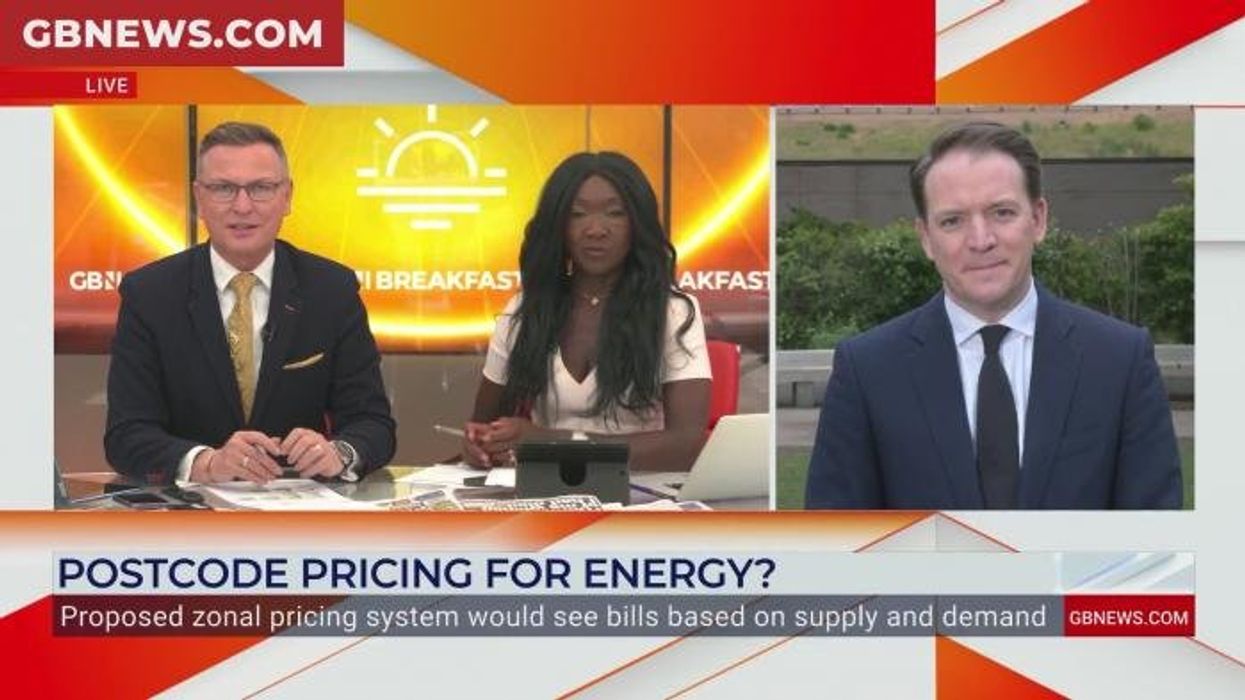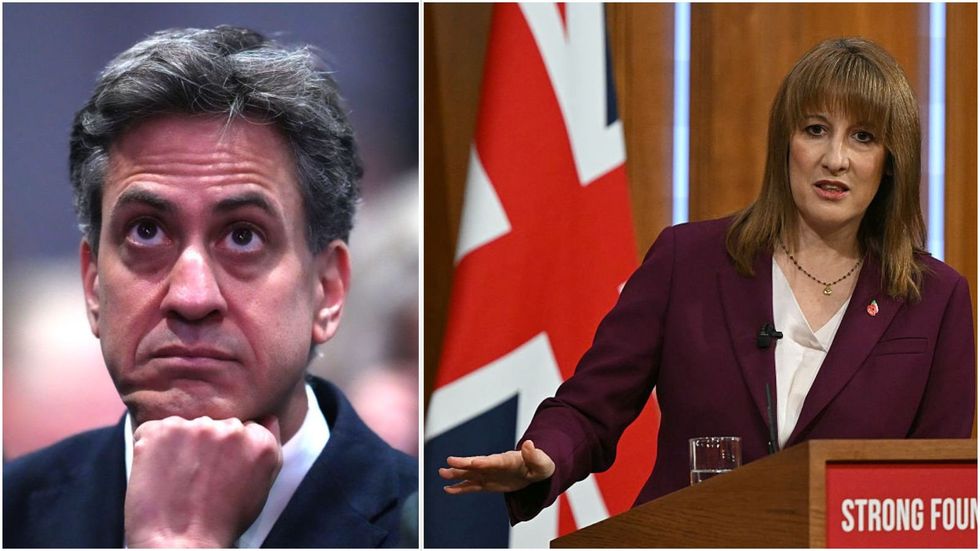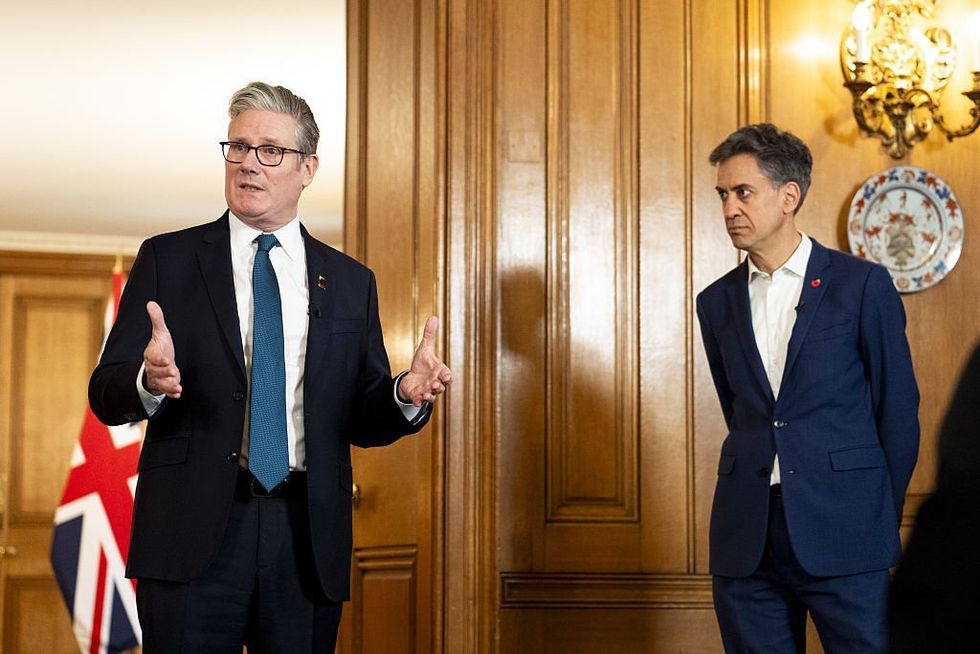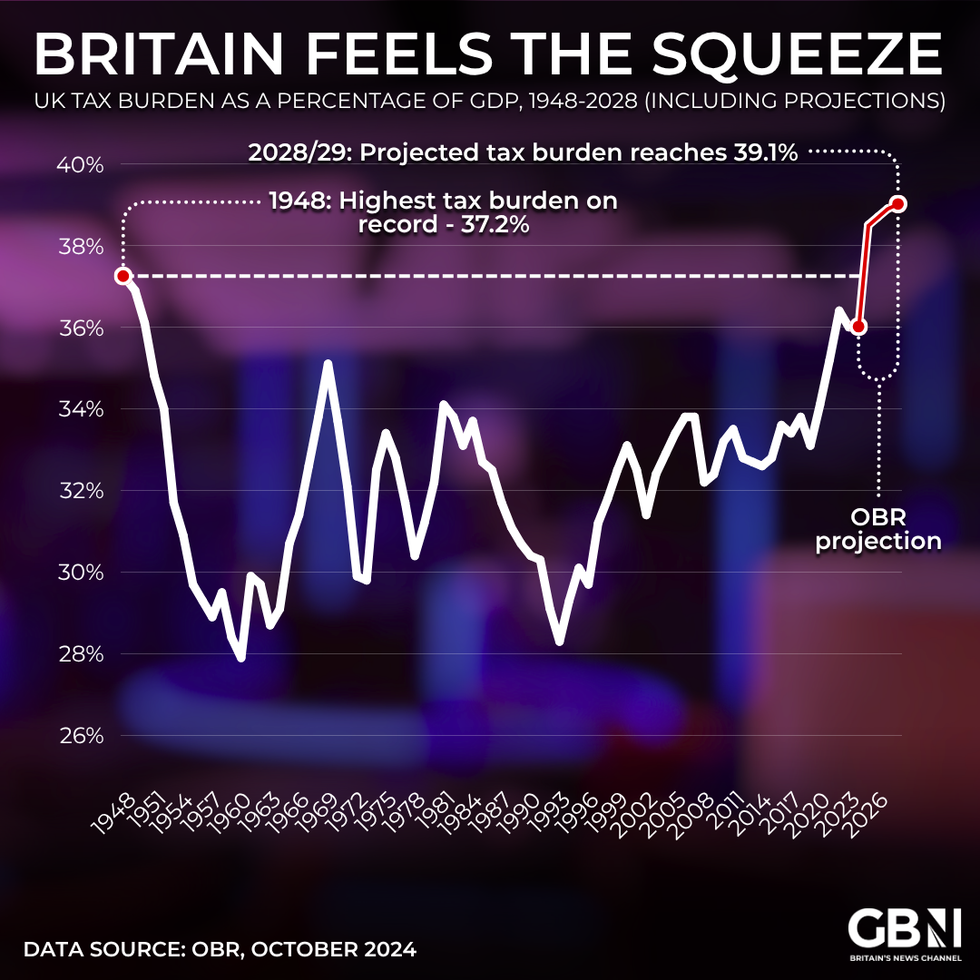Budget 2025: Rachel Reeves considers cut to green levies in move to bring down energy bills by £170

Ed Miliband risks ‘disproportionately burdening’ families with energy bills shake-up |
GB News

Chancellor preparing Budget package to save households up to £170 and offset spring price rise
Don't Miss
Most Read
Chancellor Rachel Reeves is preparing a £3billion annual energy support package that could cut household bills by up to £170 and shield families from an expected price rise next spring.
The plans are designed to counter an anticipated £100 increase when new energy cap levels take effect.
Government sources said ministers are increasingly concerned about the financial pressure facing families.
Prime Minister Keir Starmer is understood to be pushing for measures that not only offset the rise but bring bills down further amid continued cost-of-living challenges.
TRENDING
Stories
Videos
Your Say
The support package forms part of wider Budget preparations as the Chancellor considers steps to ease living costs while balancing significant fiscal pressures.
The measures are expected to be confirmed in the November 26 Budget statement.
A central element of the proposal involves removing the five per cent VAT currently charged on household energy bills.
The move would cost the Treasury about £2.5billion a year and deliver savings of around £86 per household.
Treasury figures see VAT removal as the simplest and quickest option to implement.
However, analysts have warned that a universal cut may benefit larger homes more and could encourage increased energy use.

Rachel Reeves looks set to take aim at green levies
|GETTY
The plan would answer long-standing consumer calls for lower energy taxation.
It would also allow the Government to challenge Reform UK, which has called for similar action.
The Chancellor is also examining reductions to environmental levies applied to bills, in particular the energy company obligation scheme.
The programme requires suppliers to fund improvements such as insulation and heating upgrades for households.
Energy sector figures have warned against cutting efficiency funding, calling the idea "disastrous".
The National Audit Office (NAO) last year raised concerns about fraud and poor workmanship within the scheme.
LATEST DEVELOPMENTS

Britain has seen some of the highest energy bills anywhere in the world
|GETTY
Further options include altering the renewable obligation certificate mechanism so that increases are linked to consumer price index inflation rather than retail price index inflation.
The change could provide additional savings for households.
Ministers had pledged to protect these green programmes as recently as June.
However, senior Treasury officials now appear willing to revisit that position to secure immediate bill reductions for consumers.
Energy bills are expected to rise by around £100 next spring under Ofgem rules.
The price cap increased typical bills to £1,755 from October, a two per cent increase worth around £35.
The latest projected rise has intensified discussions in Government about delivering support before next year.
Officials say a spring increase without intervention risks worsening household finances at a time when broader living costs remain elevated.
The Chancellor is expected to outline the support in her November Budget, allowing families to plan after winter.
Treasury sources say the timing is designed to maximise clarity for households and stabilise consumer confidence.
Ms Reeves delivered comments on Tuesday signalling that difficult decisions lie ahead.
The Chancellor said: "Each of us must do our bit for Britain's future," indicating that tax rises may be included in her plans despite campaign commitments.

UK Tax Burden as a percentage of GDP
|GB News
She accused previous administrations of prioritising "political convenience" over economic need.
Ms Reeves said: "The problem of the last 14 years is that political expediency always came above the national interest."
The Chancellor set out three priorities: easing living costs, lowering national debt, and supporting the NHS.
She added: "I have to face the world as it is, not the world that I want it to be."
The spring bill rise would add to pressure on families already dealing with higher food, housing and fuel costs.
Officials say the cumulative impact of consecutive energy increases could weaken spending power and consumer confidence if left unaddressed.
More From GB News










